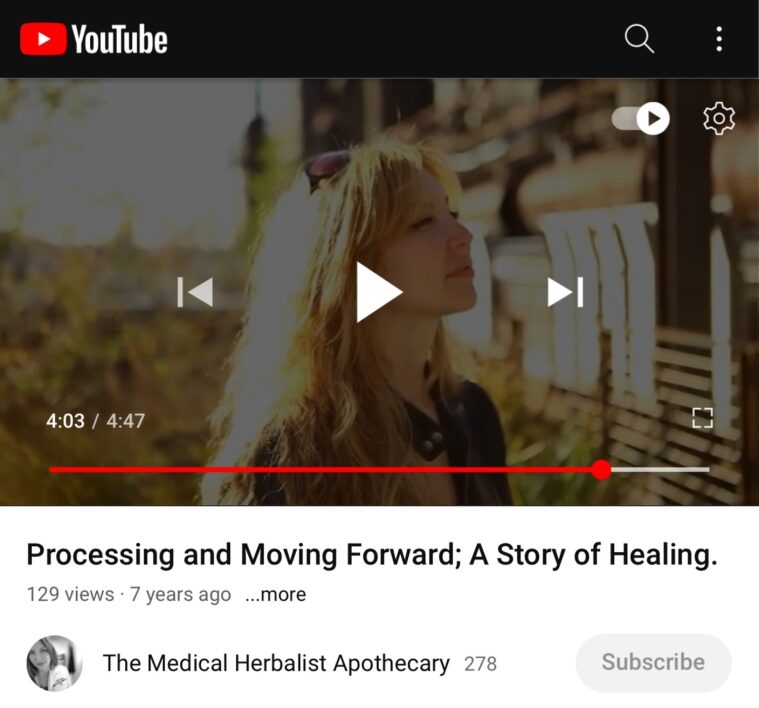Self-improvement Season is upon us (as you know all-so well at the start of a New Year).
Trends on every social media platform relating to improving upon Productivity, Lifestyle, Health/Fitness, Spiritual aims, and Relationships began flooding our consciousness just as we were digesting leftover holiday goodies, hey?
We are conditioned to see each New Year as the Ultimate Reset Button.
Do you find yourself working feverishly at year’s end to wrap-up every open-ended project or perfectly align every aspect of your lifestyle to “start fresh” on 01st January?
Its perfectly fine to use this approach to personal goal-setting, if it works for you!
Yet, many people find they let themselves down by setting lofty long-range goals, which lead to repeated cycles of “catching up” and overwhelm.
The allure to achieve the proverbial “clean slate” is real. The pressure to get it right and stay on-track is palpable.
There is a better way to improve ourselves and our lives in a far more encouraging way to achieve the annual goals with shorter, more defined blocks of time and sensible benchmarks.
The Julian Calendar
We need to get real about what our calendar year is — how it came to exist — in the first place.
While our society is scheduled around a 12-month calendar, it is a concept designed long ago, by ancient societies’ leaders.
According to the University of St. Andrews, Scotland (https://mathshistory.st-andrews.ac.uk/Astronomy) :
“In 46BC, Julius Caesar introduced a 12 month calendar that eliminated the need for additional months. By removing the requirement to keep in step with the Moon, the length of a year could be chosen so that it was very close to that of a solar year. The average calendrical year was 365.”
Let’s dig into this a little deeper to find how our measure of time was further designed by ancient human leaders:
Royal Museum Greenwich (https://rmg.co.uk) explains:
“Julius Caesar’s astronomers explained the need for 12 months in a year and the addition of a leap year to synchronize with the seasons. At the time, there were only ten months in the calendar, while there are just over 12 lunar cycles in a year.”
It gets even more clear that our measure of time was further orchestrated by certain leaders of these ancient societies:
“The months of January and February were added to the calendar and the original fifth and sixth months were renamed July and August in honour of Julius Caesar and his successor Augustus. These months were both given 31 days to reflect their importance, having been named after Roman leaders.” (https://rmg.co.uk)
We have been conditioned with these markers of time that don’t necessarily impart elevated impact or more opportune framing for Personal Transformations.
A Brain-Body Hormonal Approach to Reaching Goals
As it relates to lasting, tangible results: Our brains’ Neurotransmitter Hormones — together with our bodies’ Endocrine Hormones — align best with Seasonal Features for the most ideal benchmarks of timing, when it comes to making adjustments. These considerations include:
Length of day + night,
Environmental change of temperatures + local conditions,
Regional seasonal food access, and
Lunar (Moon) phases
When?
Some — but not all — aspects of life sync with aligning to the calendar year.
Business, Financial, Social, and Home Management goals may do well with a fresh start at the first quarter of the calendar — in January.
However, Physical and Mental Health goals best to sync with the Seasons.
Our regional conditions of daylight duration, temperature trends, and seasonal foods have a far greater influence upon our achievements because our lifestyle habits SHOULD evolve to make the most of a natural, efficient hormonal biorhythm.
Timing is everything, notably when it comes to finding greater ease in modifying habits for lasting results.
We facilitate goal achievement and maximal impact when we align with Seasonal Change.
Healing Approaches — including detoxification aims — are best sought with current Seasonal Conditions in-mind.
Why?
Ideal methods to rejuvenating brain and body functions differ during cooler, dark seasons of shorter daylight hours, as compared to warmer months with longer days.
Good News! The 12-Week Year
Seasonal goal-setting is far more efficient (and reliably achievable!) with short-range outlook!
We have four seasons of pivot points to work with, which break the year into more natural QUARTERLY blocks of time that sync with Earth’s NATURAL Biorhythm calendar!
You may be seeing numerous videos on YouTube and other social media platforms summarizing the book, “The 12-Week Year” by Brian P. Moran and Michael Pennington. This is a popular book at this season of New Year’s Resolutions, so anyone who regularly views videos on Productivity and Self-improvement are likely seeing these summary videos popping up in your ‘suggested’ videos.
In their book, a 12-week block “sprint” is comprised of narrowly defined goals to provide more reasonable and actionable benchmarks of prioritization, goal setting, and implementation.
The book posits that the deep focus on 12-week periods of time force us to more clearly plan smaller short-term goals – which enable greater success in achieving them. As a result, each smaller success that moves the needle of progress forward toward the annual goals encourages our motivation with more positive mindset.
How befitting that a natural SEASON is 12 weeks!
As an example to ease the overwhelming thrust to target every aspect of our lives: We can stagger our New Year Intentions between the Business/Financial goals at the start of a calendar year — and aim for the Spring Equinox to begin the first 12-week cycle of Health + Wellness refinements!
Not every aspect of our lives requires consecutive 12-week cycles of intense focus, either! We may find it more effective to focus on an area of life for one season, and allow the next season to work with the refinements and reflect on what requires a bit more attention.
This is to say, we may focus on Health + Wellness from March to June (Spring in the Northern Hemisphere) and then simply work with the refinements we’ve implemented through the Summer before another 12-week intensive of lifestyle adjustments to start in September. Summer may be the 12-week cycle we wish to devote to Social and Family goals, whereas Winter may find us more reflective and focused on Professional and Spiritual aims (as general examples, but this must be tailored to your own needs, of course!).
Positive Begets Positive
Successes — no matter how great or small — motivate us to keep going!
We know that the reward of achievement is a sense of fulfillment, providing motivation toward another goal in the right direction of progress.
Habit Tracking
I am an Enthusiast of Habit Tracking and Time-block Management. Seeing our schedules and habits on some format of record — whether daily paper journal and/or digital log — provides a means of logging our schedules and actions, so we can review and refine our approach as we see what does (and does not) work for us.
The 12-Week Year presents examples of habit tracking forms — but you can find many templates online, or simply create your own in a format that resonates for you.
This does not require expensive digital work flow services. If – however – this appeals to your preferred method of self-management or your workplace provides these services like Notion, Trello, Workflowe, Milanote, or other software, you may find it works for you.
Most mobile phones like iPhone’s Calendar and Reminders apps are built-in Productivity options that do not require added fees to use. It all depends upon how complex and numerous your personal and professional projects, commitments, and/or obligations may be.
Personally, I use a (simple!!) combination of scheduling and tracking methods that include the built-in mobile phone options — but my go-to for Personal Habit Tracking is in a pen-to-paper daily time-block management journal. At the end of each day – or as I complete a daily habit – I log it in for the day in the Notes section.
Accountability
Ultimately, Habit Tracking provides a foundation of accountability.
Good intentions require follow-through. If we fall off-course, IT HAPPENS!
LIFE happens.
When we fall out of the routine for more than a day or two, it is essential to schedule 15-30-60 minutes to sit quietly and collect our thoughts… Recommit… Sketch it on paper to get a visual overview, and get back into it. Nothing extraordinary, simply setting aside the time to be with our own thoughts in a quiet space (even if that means sitting in your vehicle alone or on a park bench!).
The aims are to set forth daily routines that can eventually happen without resistance. Habits — whether healthy or not — become ingrained by repetition. When we do something daily that feels easy, it is because we have gotten into a groove of doing it every day.
Daily Behavioral Patterns are established over time, and our brains eventually adapt to doing them without even thinking about them. The most uncomfortable phase, is when we start a new behavior that we wish to become habitual.
Making changes does take effort, so the act of reinforcement with logging our habits keeps us accountable. In the beginning, we may need to reward ourselves with goal-posts: Treating ourselves to a special tea, healthy smoothie, etc, may be the sort of incentives required for more challenging goals related to deep work focus sessions, paperwork, or difficult reading blocks in the schedule can help.
12-week Seasonal cycles may also benefit from reward incentives, such as a planned spa visit, vacation, or special day trip at its conclusion, can help motivate us to keep going and remain disciplined.
Define + Refine
Sometimes, we need an external resource to help keep us on-track.
If you are an Active Patient, I highly recommend making use of your Monthly Care Programme with me by sharing your Life Goals. Whether health related or otherwise, we can set up a weekly, alternate-weekly, or monthly phone call to review together and help you toward these goals.
Not everything we talk about is going to be strictly relating to your herbal medicine support. Truth is, you already know how profoundly your Emotional Body influences your Physical Body. The Mind and Emotions are intricately interwoven with brain + body hormonal balance. The herbal medicines selected are not merely for symptomatic relief — and sharing these other aspects of life can shed light on how I can best lend support for lasting results.
We can sync Habit Tracking Accountability and 12-week Seasonal Re-set Cycles with your current aspects of tailored Herbal Medicine support, your desires to do a custom Detox for seasonal renewal, or simply help you define + refine your ideal daily habits.
Each Quarter can be a New Year Fresh Start, if you so choose. Goals become more readily achievable in this way, moving us closer to the Annual Overview aims.
We can step back and look at stressors and emotional factors that may be derailing or undermining your progress.
I can simply be a point of Accountability for you — in having someone outside of yourself who is aware of your physical wellbeing and health history background to lend a bit of added perspective.
Spring Awakening
Winter is traditionally a time to dial inward for reflection on the year behind us, casting our gaze ahead toward Spring and set the course for Renewal. January and February are the perfect months to map it out in Seasonal/Quarterly segments.
As ever, I am here to support you at every step of the way toward being at your best!








